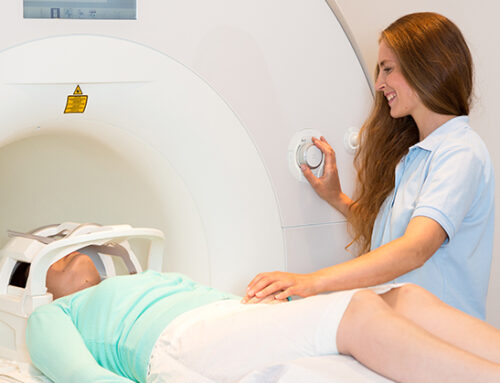When brain fog leaves you feeling sluggish and unfocused a large part of the time it can make you irritable, disorganized, anxious and fatigued. In fact, it can make for a very low quality of life.
Unfortunately, research into brain fog shows that the older you get, the more you’re at risk for this crippling condition. One reason is that our old “friend” inflammation is a major cause of brain fog – and inflammation tends to increase throughout the body with the passing years.
But you don’t have to sit back and suffer from foggy, unfocused thinking. There are simple measures you can take to diminish brain fog or even banish it altogether.
According to researchers in England at the University of Birmingham, inflammation in the body – often accompanied by an overload of stress – is now causing millions of people worldwide to have problems staying mentally alert.
In their investigation, the British researchers found that underlying inflammation disrupts what they call the “alpha power” of the brain — the brain’s ability to stay alert and focused on what’s going on around you in the here and now.1 That hinders your mental coordination and learning abilities.
Growing New Neural Networks Using the Tongue
For some cases of brain fog – particularly those linked to brain injuries – researchers are experimenting with a strange-sounding new therapy. They’re applying small amounts of electrical stimulation to the tongue, combined with physical therapy, as a way to help the brain increase its neuroplasticity.2
The researchers believe this type of stimulation helps dispel brain fog by making neurons better able to create and maintain the neural networks that help the brain stay alert and to learn and retain new information.
A study at the University of Minnesota revealed how electrical stimulation to the tongue combined with the playing of certain sounds is providing relief to sufferers of tinnitus, or ringing in the ears, by impacting the brain. The British study suggests that tongue stimulation therapy may have even wider applications in brain health.
Balancing Hormones May Relieve Brain Fog
For women specifically, going through menopause is another important factor that contributes to brain fog.
According to researchers in Italy, the shift in hormones during menopause produces significant changes in brain tissue including many that can contribute to brain fog. These can encompass disrupting how neurotransmitters are released. Menopausal hormonal changes may also reduce the efficiency of the mitochondria (energy-producing organelles) in neurons and accelerate the level of inflammation in the brain.3
In addition, the Italian scientists point out that while hormone replacement therapy (HRT) may help with brain fog early in menopause, some studies have found this type of therapy may increase your long term risk for Alzheimer’s disease. They emphasize that more research needs to be done to determine exactly how safe – or dangerous – HRT is for the brain.
I also suspect they are talking about HRT that uses synthetic hormones rather than bioidentical hormones. I would not recommend the former.
Your Diet & Medicines Make a Difference
If you feel like you’re suffering with brain fog, you can also try these scientifically validated lifestyle interventions.
- Cut back on sugar and get more omega-3 fats: Research at Ohio State looked at brain fog linked to brain inflammation caused by chemotherapy (sometimes called chemo brain), and found that eating a low-sugar diet and getting plenty of omega-3 fats (the type of fatty acids found in fish oil) may improve brain function. They say this type of diet may also protect brain proteins that help neurons function more effectively.4
- Eat a Mediterranean-style diet – emphasizing fruits and vegetables: Research shows this may lower inflammation in the body and help ease brain fog as well as other debilitating conditions.
- Exercise every day: Getting daily aerobic exercise may also help relieve brain fog since it can stimulate the growth of neurons in the brain.5 And a study in Europe shows that an exercise program can help in dealing with brain fog linked to chronic fatigue syndrome.6
- Combine antibiotics to treat Lyme disease: Many people who suffer from Lyme disease end up with brain fog even after their infection seems to clear up – a symptom of what’s called post-treatment Lyme disease syndrome (PTLDS). Researchers at Johns Hopkins are looking into how combining three antibiotics – daptomycin, doxycycline and ceftriaxone – may help clear up this condition.7 But as far as I could find, this therapy has, so far, only been tried on lab animals. I think it would be more useful for you to look into a couple of books by my friend Connie Strasheim: New Paradigms in Lyme Disease Treatment and Insights into Lyme Disease Treatment. Connie had Lyme herself and checked out all the alternatives.
There are also a number of supplements that can help with brain fog. One is sage leaf extract. Studies show that people taking sage leaf perform better on memory tests.
- https://pubmed.ncbi.nlm.nih.gov/31415883/
- https://pubmed.ncbi.nlm.nih.gov/32881193/
- https://www.ncbi.nlm.nih.gov/pmc/articles/PMC6843314/
- https://www.ncbi.nlm.nih.gov/pmc/articles/PMC6316589/
- https://www.ncbi.nlm.nih.gov/pubmed/27488632
- https://www.ncbi.nlm.nih.gov/pmc/articles/PMC7017365/
- https://www.discoverymedicine.com/Jie-Feng/2019/03/persister-biofilm-microcolony-
borrelia-burgdorferi-causes-severe-lyme-arthritis-in-mouse-model/







